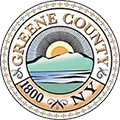Public Assistance Programs
Employment
A client in receipt of Family Assistance, Safety Net Assistance or Snap who has been deemed work eligible, has certain employment requirements to fulfill or sanctions against benefits could occur.
The Welfare-to-Work Program provides help to Family Assistance and Safety Net Assistance recipients to prepare them for, and help them find, gainful employment. This program provides for certain training and child care. Clients are between the ages of 16 and 60.
Welfare-to-Work participation begins with an orientation by an employment worker followed by an individual assessment of the client’s education level, job skills, and interests, along with past history. Based on this assessment, a worker will help a client develop an employability plan which will list the Welfare-to-Work activities.
Welfare-to-Work activities can be participation in certain education programs, job skills training, job readiness training, on-the-job training, job search, CWEP and other employment-related activities. All activities are intended to help clients become self-supporting, so they will no longer need Temporary Assistance.
Under Welfare-to-Work clients receive allowances for child care, transportation, clothing, and work tools. For clients who find employment, child care, medical assistance and Snap may continue for up to one year after the family assistance case closes.
For clients who are in receipt of Safety Net and are between the ages of 16 and 60 and able to work, job searches and work experience will be required on an on-going basis according to regulations.
Fair Hearings
Clients can have decisions about their cases reviewed by asking for a fair hearing. Hearings can be requested on a denial, discontinuance, or reduction of benefits or services on matters of state policy or a failure of the agency to act in a timely manner. An agency conference is recommended prior to fair hearings. Please call 719-3700 to schedule an agency conference.
Hearings are requested by phoning the Office of Administrative Hearings at 1-800-342-3334 or (518) 474-8781 or by writing to New York State Department of Social Services, Fair Hearing Bureau, P. O. Box 1930, Albany, New York, 12201 .
Hearings are held at the Greene County Department of Social Services, Main Street , Catskill. Hearings are presided over by an Administrative Law Judge who is a state employee. At the hearing the agency must justify the action it has taken. Clients can have representatives at the hearing and they can present evidence or bring witnesses. Hearings are usually held about one month after they are requested and decisions are rendered within six weeks after the hearing.
Nondiscrimination Statement (Aviso sobre Normas Antidiscriminatorias)
In accordance with federal civil rights law and U.S. Department of Agriculture (USDA) civil rights regulations and policies, this institution is prohibited from discriminating on the basis of race, color, national origin, sex (including gender identity and sexual orientation), religious creed, disability, age, political beliefs, or reprisal or retaliation for prior civil rights activity. Program information may be made available in languages other than English. Persons with disabilities who require alternative means of communication to obtain program information (e.g., Braille, large print, audiotape, American Sign Language), should contact the agency (state or local) where they applied for benefits. Individuals who are deaf, hard of hearing or have speech disabilities may contact USDA through the Federal Relay Service at (800) 877-8339.
To file a program discrimination complaint, a Complainant should complete a Form AD-3027, USDA Program Discrimination Complaint Form which can be obtained online at:https://www.usda.gov/sites/default/files/documents/USDA-OASCR%20P-Complaint-Form-0508-0002-508-11-28-17Fax2Mail.pdf from any USDA office, by calling (833) 620-1071, or by writing a letter addressed to USDA. The letter must contain the complainant’s name, address, telephone number, and a written description of the alleged discriminatory action in sufficient detail to inform the Assistant Secretary for Civil Rights (ASCR) about the nature and date of an alleged civil rights violation. The completed AD-3027 form or letter must be submitted to:
- mail:
Food and Nutrition Service, USDA
1320 Braddock Place, Room 334
Alexandria, VA 22314; or - fax:
(833) 256-1665 or (202) 690-7442; or - email:
FNSCIVILRIGHTSCOMPLAINTS@usda.gov
This institution is an equal opportunity provider.
New York State law additionally prohibits discrimination based on race, creed, color, national origin, citizenship or immigration status, sexual orientation, gender identity or expression, military status, sex disability, marital status, or status as a victim of domestic violence.
